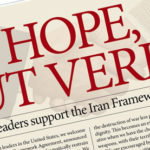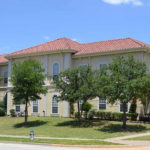HELSINKI, Finland—A theology student at Helsinki University claims she slept with 100 to 150 men as an expression of God’s love for them, and she encourages others to follow her example.
“She is promoting that for everyone,” said Mikko Sivonen, International Mission Board team strategy leader for Finland, referring to a newspaper article about the student and her lifestyle.
 Finns enjoy leisure time outdoors in parks such as this, where families gather to enjoy the day’s activities. Here entertainers create giant bubbles to the delight of children. (IMB photo by Charles Braddix)“She’s saying everybody should do that, and here’s her rationale—that is love, giving yourself to other people. And then she says these words, ‘It can’t be wrong because God is love.’ She is creating her own definition of love and using God’s name.
Finns enjoy leisure time outdoors in parks such as this, where families gather to enjoy the day’s activities. Here entertainers create giant bubbles to the delight of children. (IMB photo by Charles Braddix)“She’s saying everybody should do that, and here’s her rationale—that is love, giving yourself to other people. And then she says these words, ‘It can’t be wrong because God is love.’ She is creating her own definition of love and using God’s name.
“A lot of people would probably say, ‘Sounds right, sounds good.’ So, when I go on the street and say God is love, and God loves you, the connotation in their head is totally different than what is in my head. We are not speaking the same things, even though we are using the same vocabulary.”
Seventy-five percent of Finland’s population are registered members of the state Evangelical Lutheran Church of Finland, while 1 percent belong to the state Finnish Orthodox Church. Less than 2 percent belong to other Christian denominations and other faiths. Official statistics say the remainder are not affiliated with any religion.
While postmodernism is reflected in a society’s art, architecture, literature and social norms, it also influences theology through its embrace of the idea that all truth is relative.
Official statistics on the status of religion in Finland suggest postmodernism has infiltrated the church. The majority of Lutherans in Finland attend church only for special occasions. The church itself estimates approximately 2 percent of its members attend church services weekly, while the average number of church visits per year by church members is two.
Seventy-five percent of Finns are registered with the main state church, but up to 60 percent of the population identify themselves as “agnostics, atheists or non-believers.”
 IMB journeyman Adam Gold takes a moment to pray during services at Espoon Kotikirkko, a Baptist congregation in Helsinki. (IMB photo by Charles Braddix)In an effort to help equip Finland’s young evangelical leaders to minister in the country’s postmodern environment, Sivonen was instrumental in establishing Helsinki’s Agricola Theological Institute, where he serves as academic dean and instructor.
IMB journeyman Adam Gold takes a moment to pray during services at Espoon Kotikirkko, a Baptist congregation in Helsinki. (IMB photo by Charles Braddix)In an effort to help equip Finland’s young evangelical leaders to minister in the country’s postmodern environment, Sivonen was instrumental in establishing Helsinki’s Agricola Theological Institute, where he serves as academic dean and instructor.
Sign up for our weekly edition and get all our headlines in your inbox on Thursdays
The school is named after Reformation theologian Mikael Agricola, who is considered the father of the modern Finnish language. He translated and published the New Testament into Finnish in 1548.
“Agricola Theological Institute is a training institute to train men for pastors, for pastorship and church planting, so they can handle the word of God correctly, and they can nourish and feed God’s people in the churches (and) so they can engage the lostness in Finland,” Sivonen said. “Our goal is that our graduates will deepen their own faith and work to feed and nourish the faith of those under their care in their congregations.”
Jani Tuppurainen is a student at Agricola Theological Institute and a member of Espoon Kotikirkko, a Baptist congregation in Helsinki where Sivonen serves as church-planting pastor. For Tuppurainen, reaching postmodern Finland is all about relationships.
If you ask a Finn if he believes in God, he often will respond, “That’s my business, not yours,” Tuppurainen said
 Jani Tuppurainen, a member of Espoon Kotikirkko and student of Helsinki’s Agricola Theological Institute, prepares for exams. (IMB photo by Charles Braddix)
Jani Tuppurainen, a member of Espoon Kotikirkko and student of Helsinki’s Agricola Theological Institute, prepares for exams. (IMB photo by Charles Braddix)
“People want to know about your life, how you live your life, how you are with friends, how you make friends, how you relate to them at home, in the workplace, on campus. Then people start to ask questions about your views on things.”
People are impressed about one living a life faithful to God and “not making a big fuss about it,” he said.
IMB Journeyman Adam Gold agrees with Tuppurainen about the need for good relationships in order to be a good witness. In Finland, people feel no need or knowledge of a need for God, no knowledge of a need for a savior, and no knowledge of sin, he observed.
“No one is particularly seeking spiritual things,” he said. “Sometimes it takes a lot of asking questions and going deep, and that can be a very long time with Finns.”
 Scandinavian countries dominate the global statistics for coffee consumption, with Finland on top. The world average for consumption based on weight of beans is 1.3 kg per person, while Finns consume 12.0 kg. (IMB photo by Charles Braddix)Finns require a lot of personal space, Gold said, “and not a lot of personal questions.”
Scandinavian countries dominate the global statistics for coffee consumption, with Finland on top. The world average for consumption based on weight of beans is 1.3 kg per person, while Finns consume 12.0 kg. (IMB photo by Charles Braddix)Finns require a lot of personal space, Gold said, “and not a lot of personal questions.”
If he is open about his life and his story, about his struggles and need, and if he is transparent and honest about various areas of life, others begin to slowly open up and respond to him, he noted.
“Finns do want to talk, want to engage; you just have to help them along the way,” Gold said.
Sivonen asks Christians to pray God will “raise a generation … hungry for the truth and openness to learn,” and that Agricola Theological Institute would be faithful to equip them to meet the challenges of ministering in a postmodern Finland.















We seek to connect God’s story and God’s people around the world. To learn more about God’s story, click here.
Send comments and feedback to Eric Black, our editor. For comments to be published, please specify “letter to the editor.” Maximum length for publication is 300 words.